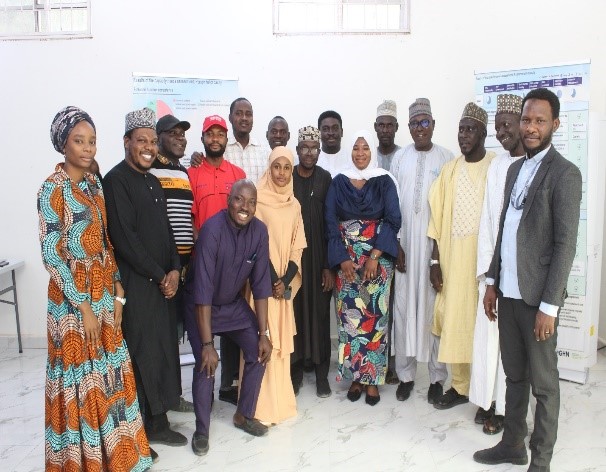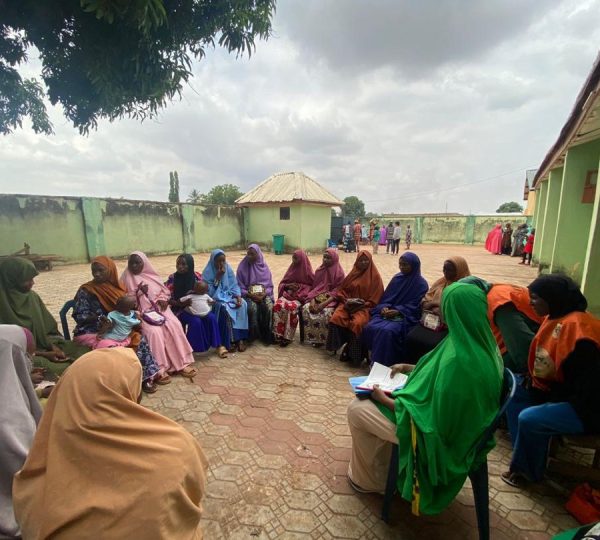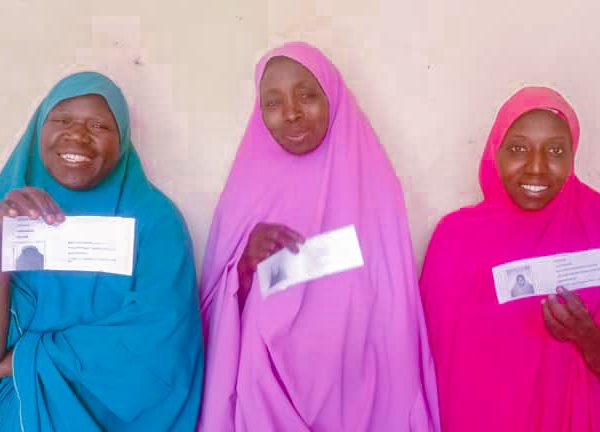Strengthening the Operationalisation of the HIV Technical Working Group in Jigawa State
By Jeremiah Bassey, Samson Goyit, Innocent Pius
In a significant effort to advance HIV implementation progress within the state, the Jigawa State Agency for the Control of AIDS (JISACA), in collaboration with USAID Implementing Partners (IPs) which are; Society for Family Health (SFH) implementing the Integrated Child Health and Social Service Award (ICHSSA 3), Georgetown Global Health of Nigeria (GGHN), implementing the Accelerating Control of the HIV Epidemic (ACE 2) and Heartland Alliance (HALG) implementing the Key Population Care (KP CARE 1) initiative, conducted a State Capacity Building Mirror Workshop. The workshop’s goal was to establish an Active HIV Technical Working Group (TWG) to coordinate implementation of HIV programmes, involvement of HIV IPs in the state and provide high-level technical input to enhance programme performance.
The workshop, convened in Dutse, Jigawa state, was a collaborative effort led by State Team Leads and Programme Officers from GGHN, SFH, HALG, and Solina Centre for International Development and Research (SCIDaR), with support from JISACA. The overarching objective was to operationalise an active Technical Working Group that would effectively manage HIV implementation programmes within the state, enhance Stakeholders’ Programme and Personnel Management Skills, and ensure that workshop outcomes addressed critical areas, fostering significant positive impacts. Key outcomes included alignment on the need for capacity building, validation of findings from capacity assessments, and agreement on capacity improvement plans. These initiatives were to foster increased participation and collaboration between the state and its partners, ultimately enhancing the delivery of optimal HIV programmes.
The workshop introduced innovative approaches such as Personal and team Leadership, problem solving, communication and Facilitation skills. To enhance operational effectiveness, sub-technical working groups (TWGs) were established, including finance TWG, Commodity supply and logistic TWG, Social mobilisation TWG, and Service delivery TWG. These sub-TWGs were integrated into major HIV TWGs, such as ART, PMTCT, and care and prevention, covering critical roles in Programmes, monitoring and evaluation, coordination, finance, and logistics. The workshop prioritised capacity building through classroom training, employing a “See one – Do one – Teach one” approach to empower state personnel across assigned sectors, departments, and functions with leadership and management modules.
Recognising the importance of the working group, implementing partners (IPs) proposed the use of Kirkpatrick’s evaluation model to assess the intervention’s impact over time. To ensure the immediate kickstart of capacity improvement plans, IPs mapped thematic areas for stakeholder training, assigned personnel to JISACA and the State AIDS, STIs control programme (SASCP) to GoN personnel and provide support to the established TWGs. SFH ICHSSA 3’s role is to support state stakeholders in OVC programmes, monitoring and evaluation and capacity building, which will address gaps in Orphans and Vulnerable Children programming and data management





